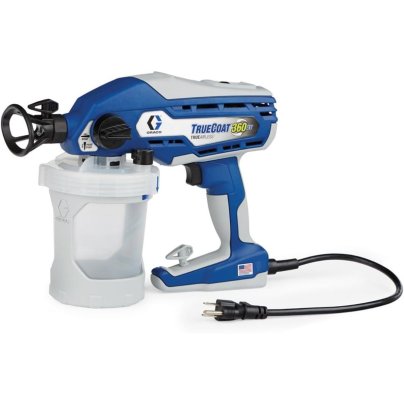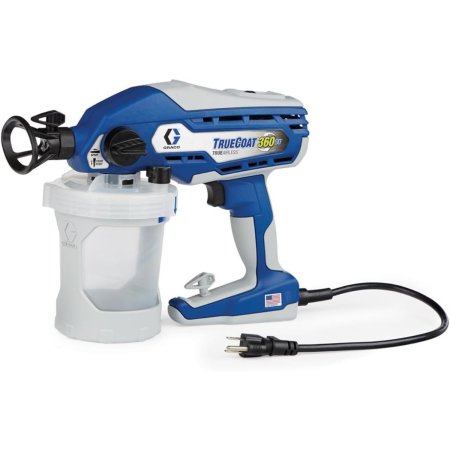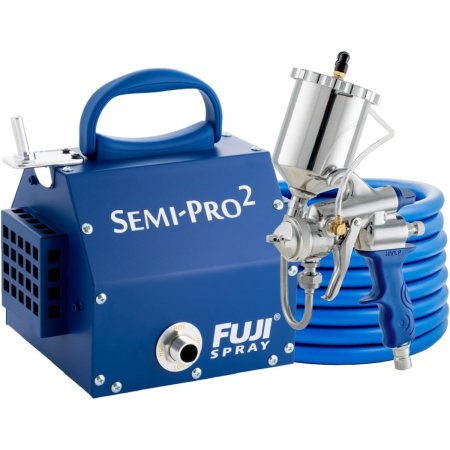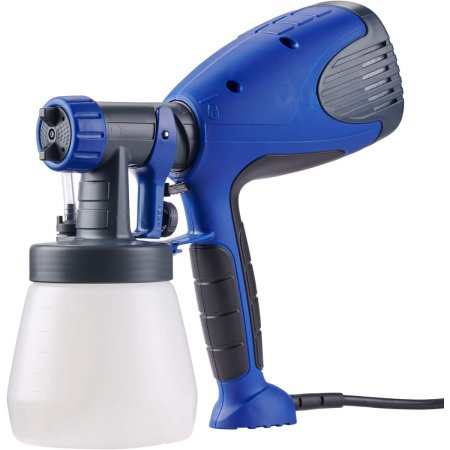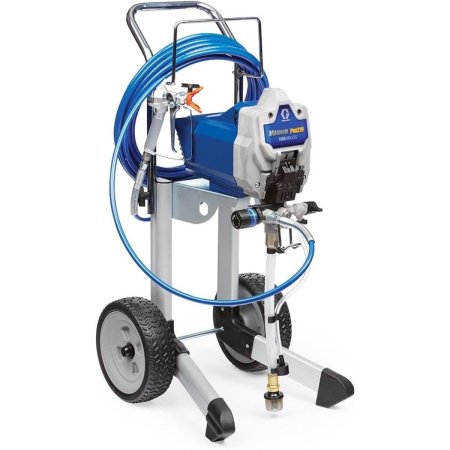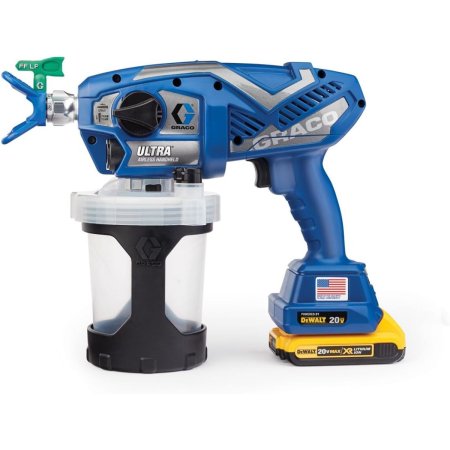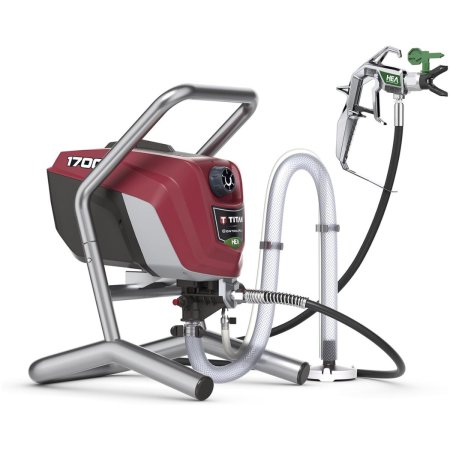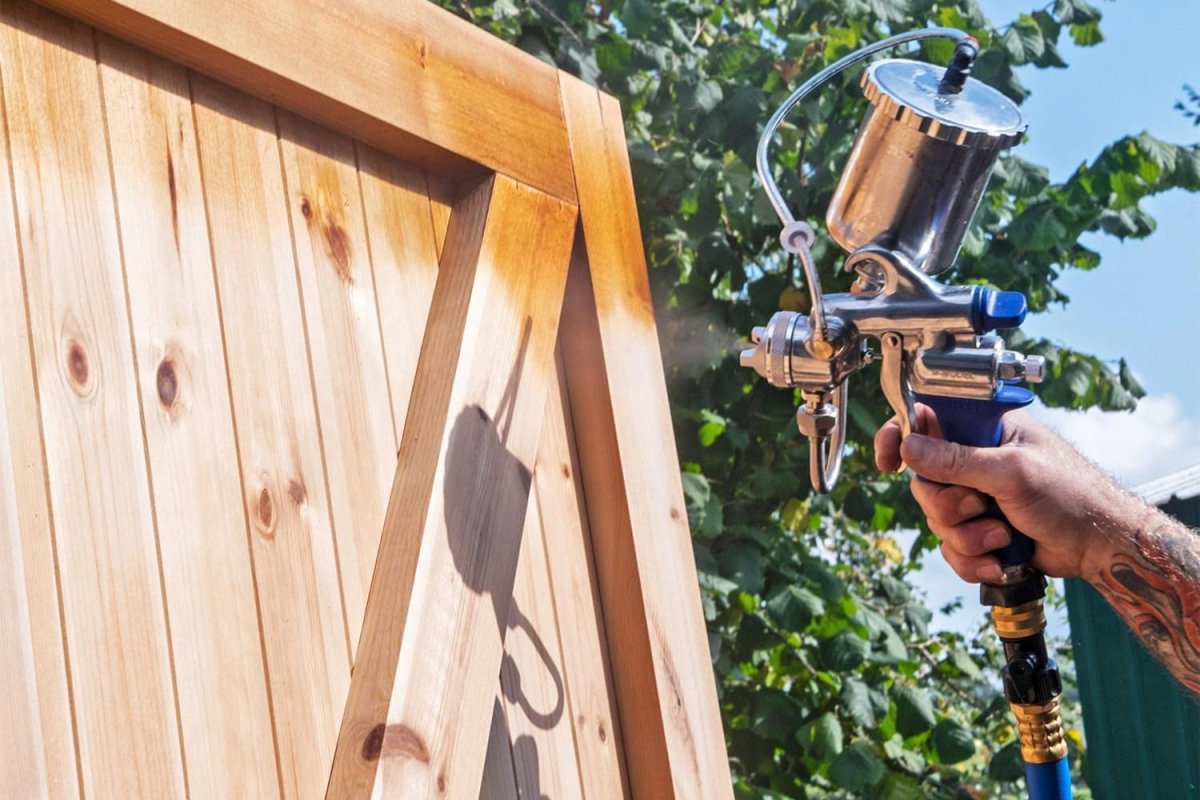
We may earn revenue from the products available on this page and participate in affiliate programs. Learn More ›
Paint sprayers make quick work of paint jobs large and small. But since most of us don’t use these painting tools all that often, choosing the right one for your upcoming project may not be easy. To help you find a good paint sprayer for cabinets, walls, fencing, or furniture, we tested eight of the most capable, popular, and affordable models on the market. We also interviewed a professional painter with over 20 years of experience to get their advice.
Once our tests and research were complete, we selected the Wagner Control Spray Max Sprayer as the best overall model for most users. It’s quiet, has variable power settings that make it incredibly easy to use, and delivers excellent coverage and finish results. We found many of the other models we tested to be strong contenders as well, so we outlined their pros and cons below, alongside key factors to consider when selecting the best paint sprayer for your needs.
- BEST OVERALL: Wagner Control Spray Max Sprayer
↓ Jump to Review - BEST BANG FOR THE BUCK: Graco TrueCoat 360 Dual Speed Paint Sprayer
↓ Jump to Review - BEST FOR PROS: Fuji Semi-Pro 2 Gravity Paint Sprayer System
↓ Jump to Review - BEST HVLP: HomeRight Quick Finish HVLP Paint Sprayer
↓ Jump to Review - BEST HEAVY-DUTY: Graco Magnum ProX19 Electric Paint Sprayer Cart
↓ Jump to Review - BEST PORTABLE: Graco Ultra Cordless Handheld Airless Paint Sprayer
↓ Jump to Review - ALSO CONSIDER: Titan Tool ControlMax 1700 Paint Sprayer
↓ Jump to Review
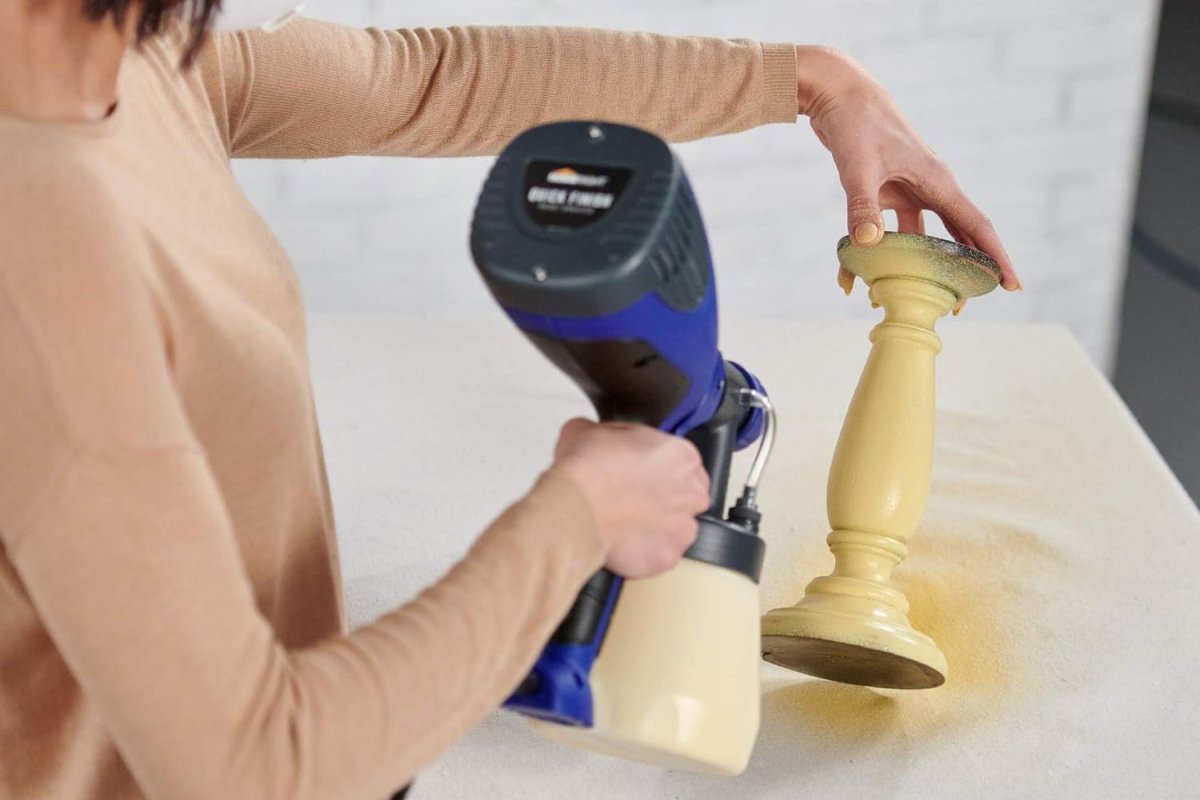
Paint Sprayers Comparison Chart
| Product | Type | Fluid volume | Range |
|---|---|---|---|
| Wagner Control Spray Max Sprayer | HVLP | 1 to 1.5 quarts | 20-foot air hose, 6-foot power cord |
| Graco TrueCoat 360 Dual Speed Paint Sprayer | Airless | 1 quart | 2-foot power cord |
| Fuji Semi-Pro 2 Gravity Paint Sprayer System | HVLP | 1 quart | 25-foot air hose, 6-foot power cord |
| HomeRight Quick Finish HVLP Paint Sprayer | HVLP | 0.84 quarts | 5-foot power cord |
| Graco Magnum ProX19 Electric Paint Sprayer Cart | Airless | Direct suction from paint pail, up to 5 gallons | 50-foot airless hose, 6-foot power cord |
| Graco Ultra Cordless Handheld Airless Paint Sprayer | Airless | 1 quart | Unlimited, cordless |
| Titan Tool ControlMax 1700 Paint Sprayer | Airless | Direct suction from paint pail, up to 5 gallons | 30-foot airless hose (can be extended to 80 feet), 2-foot power cord |
Our Top Picks
The best paint sprayers for cabinets, walls, and other surfaces not only reduce project time significantly but also provide consistently high-quality results. Read on to learn how each spray paint machine we recommend performed in our hands-on tests. home tests. If you’re thinking of buying a new paint sprayer, one of these could be a great choice.
Best Overall
Wagner Control Spray Max Sprayer
What We Like
- Variable power settings and 2-stage turbine for customizing flow
- Suitable for latex paint, stains, and poly
- Great for medium-sized areas like furniture or decks
- Comes with 1-quart aluminum and 1.5-quart nylon paint cups
- Easy to assemble, disassemble, and clean up after use
What We Don’t Like
- Plastic components may hold up long term
- Viscous paint must be thinned
Product Specs
- Type: HVLP
- Fluid volume: 1 to 1.5 quarts
- Range: 20-foot air hose, 6-foot power cord
This Bob Vila Approved product carries our brand’s highest level of recommendation.
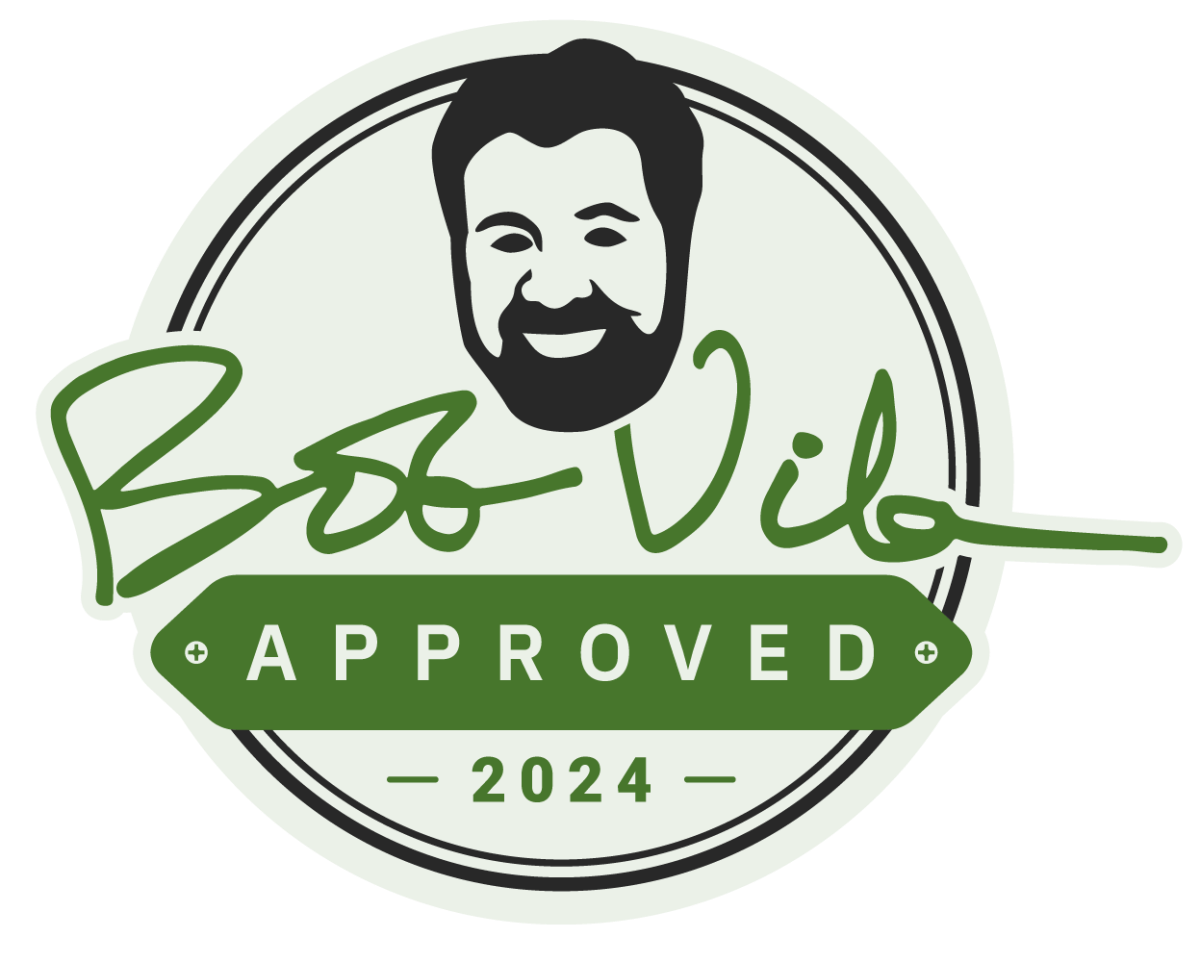
Bob Vila Approved recognizes the household and DIY products that impressed us most in our real-world testing and that exemplify core values of the Bob Vila brand, including craftsmanship, innovation, and value for the dollar. Winners of this designation come recommended by our professional review team and are personally approved by Bob Vila.
Our Ratings: Ease of Use 5/5; Coverage 5/5; Cleanliness 4/5; Noise 5/5; Value 4.7/5
Boasting a 20-foot-long flexible hose, this 11.2-pound, 110-volt, air-powered paint spray gun unleashes a high volume of paint or stain at low pressure. The sprayer’s 1.5-quart capacity hopper and two-stage turbine accommodate virtually any finish, be it as viscous as latex paint or as thin as wood stain. With a simple twist of the air cap, you can spray in a vertical, horizontal, or round pattern. At the same time, the sprayer’s variable air pressure control, ranging from 1.50 to 2.63 psi (pounds per square inch), reduces the risk of overspray.
This Wagner sprayer uses HVLP (high volume-low pressure) technology to deliver a professional finish by atomizing materials into fine particles. Its adjustable flow control lets you match paint output to your project’s size and complexity, making it suitable for larger areas like decks and detailed work such as trim or cabinetry. Overall, we think this sprayer offers excellent performance for the price plus relatively quick and easy cleanup, making it our top pick for home use.
What our tester says: “We got great coverage and finish results using this sprayer on a medium air setting with water-based interior latex paint thinned by about 25 percent. Applying oil-based stain with this sprayer was even easier since no thinning was necessary.”—Mark Wolfe, Product Reviews tester and writer
Get the Wagner paint sprayer at Amazon, The Home Depot, or Walmart.
Best Bang for the Buck
Graco TrueCoat 360 Dual Speed Paint Sprayer
What We Like
- Sprays in any direction, including upside down
- Offers dual speed control for small or large projects
- Makes an ideal fence paint sprayer
- Works well as a paint sprayer for latex paint—no thinning necessary
What We Don’t Like
- Very large projects will require reloading
- Needs to be used when it’s above -40 and below 90 degrees Fahrenheit
- A bit of overspray; best outdoors or in the shop
Product Specs
- Type: Airless
- Fluid volume: 1 quart
- Range: 2-foot power cord
Our Ratings: Ease of Use 5/5; Coverage 5/5; Cleanliness 5/5; Noise 5/5; Value 4.3/5
If you are a hobbyist or DIYer looking for a high-quality, general-purpose paint sprayer, the Graco TrueCoat 360 might be just what you need. Although it’s not the least expensive option on our list, it offers excellent value for its price. The sprayer features dual speeds—low for detailed work and high for big projects—and its stainless steel piston pump generates enough pressure to apply unthinned paint with ease. Reversible spray tips help reduce downtime by clearing clogs quickly, ensuring a cleaner, smoother finish. Additionally, the FlexLiner bags and VacuValve system allow for painting at any angle, including upside down.
In our testing, we used this sprayer to apply unthinned water-based latex paint and oil-based stain. It delivered a smooth, even coat with minimal overspray—no runs, leaks, or clogs. Disassembly takes just a few minutes, cleaning is straightforward, and the FlexLiner bags are reusable and may be recycled if they become too worn.
What our tester says: “The Graco TrueCoat is a great option for DIYers needing a user-friendly and versatile paint sprayer that delivers excellent results but won’t break the bank.”—Mark Wolfe, Product Reviews tester and writer
Get the Graco TrueCoat paint sprayer at Lowe’s, Ace Hardware, The Home Depot, Walmart, or Blain’s Farm & Fleet.
Best for Pros
Fuji Semi-Pro 2 Gravity Paint Sprayer System
What We Like
- 1,400-watt 2-stage bypass motor
- Quick-connect coupling and air control valve
- Rear-situated fan for fully adjustable spray pattern control
- Suitable for small and large projects
What We Don’t Like
- Gravity feed cup is small and may require frequent refilling
- Hose and gun are on the heavy side
- Thinned paint may not provide adequate coverage
Product Specs
- Type: HVLP
- Fluid volume: 1 quart
- Range: 25-foot air hose, 6-foot power cord
Our Ratings: Ease of Use 4.7/5; Coverage 5/5; Cleanliness 4.5/5; Noise 5/5; Value 4/5
This spray system is powered by a 1,400-watt electric turbine motor housed in a heavy-duty metal case. It includes a 25-foot high-flex hose for an extended range on larger projects plus a spray gun with a 1-quart gravity feed cup and a 1.3-millimeter air cap set preinstalled for spraying medium to thin materials. The fan spray pattern adjusts between horizontal, vertical, and circular and is easy to widen or narrow for broader coverage or greater detail.
As with other HVLP spray guns, the Fuji Semi-Pro 2 works best with oil- or water-based paints and stains thinned to the proper consistency. In our tests, it delivered excellent coverage and finish results with latex paint thinned by 25 percent as well as with oil-based stain. Its metal provides more durability than the plastic used by other models, and additional air cap sizes are available for various material types. The entire spray gun and gravity cup can be disassembled for cleaning and maintenance, and replacement parts are available if needed.
Get the Fuji paint sprayer at Amazon or The Home Depot.
Best HPLV
HomeRight Quick Finish HVLP Paint Sprayer
What We Like
- Adjustable air cap for multiple spray patterns
- Compatible with thinned chalk, milk and latex paint, stain, sealer, lacquer, and varnish
- Great for cabinetry, furniture, crafting, and small fences
- Lightweight and easy to maneuver
- Smooth and consistent finish
What We Don’t Like
- Speed isn’t adjustable
- Small fluid volume reservoir
- Paint and stain must be thinned
Product Specs
- Type: HVLP
- Fluid volume: 0.84 quarts
- Range: 5-foot power cord
Our Ratings: Ease of Use 4.7/5; Coverage 4/5; Cleanliness 4.5/5; Noise 4/5; Value 4.7/5
This 3.6-pound air-driven electric paint spray gun is great for small- and medium-sized projects like painting kitchen cabinets, wood doors, or furniture. The adjustable air cap unleashes a high volume of air at low pressure to allow more paint to reach surfaces, while the adjustable nozzle allows you to spray on a smooth finish using a vertical, horizontal, or round spray pattern. Once you’ve achieved a look you love, cleanup is easy—simply fill the hopper with water and spray until the water runs clear.
HomeRight’s handheld paint sprayer is a good choice for quick projects, and it is small enough to stow away in a drawer or hang on a pegboard. In our tests, it laid down good coverage and a good finish with both thinned water-based paint and oil-based stain. It does not work with viscous paint that has not been thinned. Setup and cleanup were relatively fast and easy, except for one small O-ring in the sprayer gun that must be carefully removed, cleaned, and replaced.
Get the HomeRight paint sprayer at Amazon.
Best for Heavy-Duty
Graco Magnum ProX19 Electric Paint Sprayer Cart
What We Like
- Changeable spray gun tips prevent clogs and overspray
- Great for houses, rooms, fences, and decks
- No need to thin paint
- Swivel connectors make moving easier
- Hose and sprayer store on included cart
What We Don’t Like
- Somewhat complicated cleanup and storage
- Not a good choice for smaller projects
Product Specs
- Type: Airless
- Fluid volume: Direct suction from paint pail, up to 5 gallons
- Range: 50-foot airless hose, 6-foot power cord
Our Ratings: Ease of Use 4.7/5; Coverage 5/5; Cleanliness 4.7/5; Noise 5/5; Value 4.7/5
This professional-grade 27.3-pound spray unit features adjustable pressure, a stainless steel piston pump, and a flexible suction tube that lets you spray paint at your preferred rate of flow directly from a 1- or 5-gallon paint can. The built-in wheeled cart helps you haul cans of paint, and the 50-foot flexible hose allows you to spray hard-to-reach surfaces, such as the side of a multistory house. The Graco is rated for use for up to 500 gallons of paint annually.
The Graco Magnum ProX19 is the perfect choice for large projects like decks, fences, or a whole-house exterior. In our tests, it offered ample power to spray unthinned, water-based latex paint with outstanding coverage, good accuracy, and a nice, even finish. The 50-foot airless hose was surprisingly agile, thanks to swivel connectors at both the spray gun and pump connection points. Cleanup was more time-consuming and complicated than with smaller handheld spray guns but not difficult.
Get the Graco ProX19 paint sprayer at Amazon, Lowe’s, Ace Hardware, The Home Depot, Walmart, or Blain’s Farm & Fleet.
Best Portable
Graco Ultra Cordless Handheld Airless Paint Sprayer
What We Like
- Rechargeable battery sprays up to 1 gallon per charge
- Sprays at any angle, including upside down
- Spray tips are interchangeable with other Graco airless spray guns
- No paint thinning necessary
What We Don’t Like
- Runtime likely too short for large jobs
- Needs repriming if air enters FlexLiner
- More time-consuming to prep than others
Product Specs
- Type: Airless
- Fluid volume: 1 quart
- Range: Unlimited, cordless
Our Ratings: Ease of Use 4.7/5; Coverage 5/5; Cleanliness 5/5; Noise 4/5; Value 4.3/5
This portable paint sprayer offers the spraying power of airless with the mobility of handheld cordless. The kit includes the small paint sprayer and FlexLiner cupholder with two spray tips, four FlexLiner paint cups, two rechargeable 20-volt DeWalt batteries, a battery charger, and a soft-sided carrying case. The spray gun produces operating pressure between 500 and 2,000 psi and can spray virtually any viscosity paint or stain without thinning.
The Graco Ultra cordless performed as well in our testing as the traditional stand-up and cart-type airless sprayers. It had no trouble producing an even finish of unthinned water-based latex paint without runs, clogs, or leaks. Oil-based stain worked equally well. We applied quarts of both products on the same battery without losing charge or any noticeable reduction of power. This is an excellent tool for smaller projects, but the somewhat complicated and time-consuming reloading process makes it less convenient for larger jobs.
Get the Graco cordless paint sprayer at Amazon, Ace Hardware, or Walmart.
Also Consider
Titan Tool ControlMax 1700 Pro Paint Sprayer
What We Like
- Efficient airless technology decreases possible overspray by 55 percent
- Frame increases portability
- Simple assembly with minimal intricate parts
- Airflow control knob with levels 1 through 5
- Good results for a great price
What We Don’t Like
- Lack of swivel connectors makes mobility difficult
- Short power cord; extension cord necessary
- Almost too low to the ground for 5-gallon paint buckets
Product Specs
- Type: Airless
- Fluid volume: Direct suction from paint pail, up to 5 gallons
- Range: 30-foot airless hose (can be extended to 80 feet), 2-foot power cord
Our Ratings: Ease of Use 4.7/5; Coverage 5/5; Cleanliness 4.5/5; Noise 5/5; Value 4.7/5
This high-efficiency airless spray paint gun features a softer spray pressure (1,500 psi max) and improved tip design that reduces overspray by up to 55 percent while keeping pace with conventional airless paint sprayers. Powered by a 0.6-horsepower motor, it sprays unthinned paint directly from a 1- or 5-gallon pail at rates up to 0.33 gallons per minute and over 300 gallons per year. It boasts a durable metal spray gun and a 30-foot airless hose that can be upgraded to 80 feet for maximum reach.
Although priced about $250 lower than some comparable paint sprayers, the Titan ControlMax performed similarly. It easily laid down a smooth, even coat of latex paint without runs, leaks, or clogs. Although we would have appreciated a few upgrades to the design, such as including swivel hardware on the airless hose at the gun and pump attachments, it’s hard to beat this one for the combination of price and results.
Get the Titan paint sprayer at Amazon, Lowe’s, Ace Hardware, The Home Depot, or Walmart.
Jump to Our Top Picks
How We Tested the Best Paint Sprayers
| Testing Stats | |
| Products tested | 8 |
| Time spent testing | 40 hours |
| Tests performed | 6 |
| Price range | $50 to $775 |
Paint sprayers are designed to apply a variety of fluids, from thick, viscous exterior latex paints to solvent-based stains that are almost watery in texture. Most homeowners don’t have room for two or three different sprayers, so we wanted to perform tests that would show sprayer capability with both thick and thin products.
Our test surface was an old wooden privacy fence. The surface was rough and grainy, with dried pine knots and knot holes that would make paint coverage challenging. Following the manufacturer’s instructions for paint and stain preparation, we used each sprayer to apply water-based paint. We then cleaned each sprayer and applied oil-based stain in new areas of the fence.
As expected, the HVLP sprayers struggled to cover the imperfections with thinned paint. Two or three coats were necessary for complete coverage. The airless sprayers, on the other hand, did a great job with single coats since they use unthinned paint. With the oil-based stain, coverage was comparable between HVLP and airless. The airless models worked significantly faster with more overspray, while the HVLPs were slower and more accurate.
| Product | Ease of Use | Coverage | Cleanliness | Noise | Value |
| Wagner Control Spray Max Sprayer | 5 | 5 | 4 | 5 | 4.7 |
| Graco TrueCoat 360 Dual Speed Paint Sprayer | 5 | 5 | 5 | 5 | 4.3 |
| Fuji Semi-Pro 2 Gravity Paint Sprayer System | 4.7 | 5 | 4.5 | 5 | 4 |
| HomeRight Quick Finish HVLP Paint Sprayer | 4.7 | 4 | 4.5 | 4 | 4.7 |
| Graco Magnum ProX19 Electric Paint Sprayer Cart | 4.7 | 5 | 4.7 | 5 | 4.7 |
| Graco Ultra Cordless Handheld Airless Paint Sprayer | 4.7 | 5 | 5 | 4 | 4.3 |
| Titan Tool ControlMax 1700 Paint Sprayer | 4.7 | 5 | 4.5 | 5 | 4.7 |
What to Consider When Choosing a Paint Sprayer
Types of Paint Sprayers
Heavy-duty air-driven paint sprayers use high-pressure air from a home air compressor to atomize paint or stain and provide a fine finish. Airless sprayers are electric- or gas-powered tools that mechanically pump paint or stain into the sprayer, which then pushes the finish through the sprayer tip, where it’s atomized and becomes a spray.
Sprayer Tips and Patterns
Sprayers are rated for the tip size or sizes they can support.
- A sprayer’s tip size sometimes refers only to the size of the opening, as in a 0.015 tip. Other times, it indicates two things at once—both the fan size (in inches) and the size of the tip opening. For example, a 515 tip sprays paint in a 5-inch diameter out of a tip opening that measures 0.015 inches.
- Stains require smaller tip sizes and less pressure, while paints and heavier coatings need larger tip sizes and more pressure. Consider the jobs you will be tackling, and for each sprayer option you consider, pay attention to its maximum recommended tip size. The greater the maximum recommended tip size, the more finish the sprayer can output per minute.
- A paint sprayer’s spray pattern is the shape in which the tool outputs the finish. The best paint sprayers can spray in multiple patterns: round, horizontal, and vertical. Having these options available means you can switch from spraying a wide fan across a surface to a fan of the same width moving up and down without having to turn the sprayer.
- Each tip size comes in multiple spray-pattern widths. Widths can vary from about 6 to 14 inches wide. Smaller surfaces, like fence rails, call for smaller pattern width. Ceilings, walls, and larger surfaces call for larger pattern width.
- Tips can be standard or reversible. The difference? A reversible tip can be unclogged easily by turning it around and blowing out the blockage.
Safety
Sprayers demand your respect. Always read and follow the manufacturer’s safety, setup, and operating instructions. Use a respirator mask and safety glasses when spraying, and never spray at a person, animal, or window.
Cover or mask off anything in the vicinity of your project, including windows and trim, because vaporized paint gets into everything. Cover plants if spraying outside, and avoid painting on windy days.
According to professional painter Matt Boden, owner of Fresh Coat Painters in Tampa, Florida, you also need to consider what you’re painting to ensure you choose a sprayer you can use safely. Boden says, “If you are painting high ceilings, you will need a lighter handheld or a sprayer with a longer hose to be able to reach. So, depending on the area being painted, you will need to be comfortable with using the sprayer.”
Tips for Choosing the Best Paint Sprayer
- Sprayers with 25 feet or more of a flexible hose or a long extension cord are best for jobs that require distance, like painting a fence.
- If you need to carry your paint supply a long distance, consider a unit with wheels or a backpack.
- Determine your paint capacity and how often you’ll need to refill. You might opt for a larger hopper or a unit that draws straight from the can.
- Think about the cleanup and whether you want a unit that comes apart for easy cleaning. Smooth interior surfaces and units that draw from the can make cleaning easier, too.
Boden says that “the most common mistake people make when using sprayers is not properly taking the time to clean them after using them.” He adds, “If you don’t take the necessary steps to clean the machine properly, it will not function properly for future use.”
- Consider an adjustable pressure control with high, low, cleaning, or roller settings to help extend the life of your spray tips. A model that comes with a pressure roller attachment can also take over on projects where spraying isn’t possible (it, too, applies paint up to four times faster than a traditional roller and with less mess).
- Pay attention to whether the sprayer takes tip extensions. These are handy for painting high ceilings, foyers, and hard-to-reach spaces.
For cost purposes, you may also want to consider renting a sprayer. This decision depends on what you need to use it for and how often you’ll use it. If you choose to rent one, Boden shares his expert advice: “If the homeowner has multiple uses for the sprayer, I would start with a handheld sprayer so you can practice the technique and get used to painting with it before buying a more commercial sprayer.”
FAQs
Still wondering how to use a paint sprayer or deciding if buying a new paint sprayer is worth it? Read on to learn more from these frequently asked questions.
Not necessarily. Airless paint sprayers use a pump to pressurize the paint, causing it to ionize at the spray tip. HVLP paint sprayers use airflow to ionize the paint, but they are powered by an onboard turbine. Neither of these types uses an air compressor. A pneumatic paint sprayer requires a portable air compressor.
Yes. Paint sprayers use up to 33 percent more paint than rollers or brushes. For additional information on the difference between these two tools, see our guide on spraying vs. rolling paint.
Using an interior paint sprayer for indoor walls can get the job done faster but may require more preparation. All furnishings should be covered, and the floor should be protected from overspray, splatter, and ionized paint particles that become a dusty film. Protect yourself, too, by wearing goggles, a respirator, and protective clothing such as coveralls.
The paint sprayers in this guide cost between $50 and $775. How much you spend on one depends on what you’re using it for as well as how long and how often you’ll be using it. Generally speaking, less expensive sprayers are better for smaller jobs, whereas more expensive ones have additional features that make them great for big projects.
Both types have their advantages, but airless paint sprayers tend to work faster and don’t require you to thin the paint. However, they tend to produce more overspray.
How many coats of paint you need to apply with a sprayer depends on the project surface, the paint, and the sprayer. You may be able to get away with a single coat on projects that just need touching up and don’t require a primer, though others could need three or more coats.
Painting and staining relatively large surfaces is faster and easier with a paint sprayer than with a brush and roller. Paint sprayers apply product easily, speeding up drying time and creating a nice, even finish.
Paint sprayers can be easy to use, but they require a bit of practice. Take time getting comfortable with your sprayer to learn how to put down even coverage without excess overspray. Depending on the model, you may also need to experiment with thinning the paint or stain you’re applying. To make the learning process easier, look for a sprayer with features that make it easier to use, such as adjustable spray patterns and variable flow control.
Meet the Tester
Mark Wolfe is a writer with an extensive background in the green industry, and an avid DIYer who lives in a 50-year old home. When he isn’t writing, he spends his time upgrading, repairing, and replacing anything and everything in his home, yard, and garden. He tests and writes reviews about hand tools, lawn-care and home-repair products, and outdoor-living goods.

